Alive Blog
Five ways to avoid catching a cold
How to strengthen your immune system
Commond cold is nothing serious. It’s a viral infection that usually resolves within 5-6 days. Sometimes it can be stronger, to the point that it disrupts activities of daily living, such as work, training, etc. The following steps will not only help in strengthening your immune system and consequently to avoid catching colds, but they will also improve the quality of your life by making you feel more energetic and happier.
While there’s no guaranteed way to completely shield yourself from catching a cold, there are several proactive steps you can take to reduce your risk and bolster your overall wellness.

Prioritize good hygiene
One of the simplest yet most powerful ways to prevent the common cold is by practicing good hygiene. Regular handwashing is a cornerstone of this strategy, especially before you eat. The cold virus can linger on surfaces for hours; by washing your hands frequently with soap and water for at least 20 seconds, you can significantly reduce your risk of infection. When washing hands, use natural soap and avoid toxic chemicals such as sodium lauryl sulfate, dioxane, parabens, triclosan, ureas & other formaldehyde releasers and synthetic fragrances. This is actually true and even more important for body wash soaps and shampoos. I personally love Weleda’s products (they really make amazing and natural stuff) and recently discovered a brand called “Faith in nature” which makes very good soap (99% natural ingredients).
In the car, or whenever soap and water are not readily available, carry a hand sanitizer with at least 60% alcohol content to clean your hands. Avoid touching your face and picking your nose: your eyes, nose, and mouth are the entry points for germs. Refrain from touching your face, especially with unwashed hands. If you cough, or sneeze, cover it. Use a tissue or the crook of your elbow to cover your mouth and nose when you cough or sneeze. Dispose of tissues immediately. Lastly, regularly clean and disinfect frequently-touched surfaces in your home and workplace, such as doorknobs, light switches, and countertops.

Sleep quality and quantity
Sleeping is a vital and crucial moment for the body to recover and maintain health. Without sleep, metabolic functions are disrupted and lack of sleep quality has a profound negative impact on overall health. Without proper and good sleep, your immune system – first defence barrier against common cold viruses – does not work well. Use your bedroom only to sleep: do not watch tv, or work in your bedroom. Keep it cool: we get better sleep in slightly cool temperatures (between 15 and 16 Celsius is optimal). No screen right before sleep please. And also, get a decent mattress, a supportive one. You need to wake up and feel refreshed and energised.
If you get enough sleep, you’re more likely to experience positive emotions and resilience in the face of challenges. Conversely, a lack of sleep can make you feel like you’re walking an emotional tightrope. It’s not uncommon to experience irritability, mood swings, and increased stress when you’re sleep-deprived. Your emotional balance teeters precariously, waiting for the anchor of restful sleep to stabilize it.
The aim is for 8 or more hours of sleep per night. Ways to get better, longer sleep: go to bed ONE hour earlier than you currently do. Ensure that your room is cool and dark. Avoid TV or computers one hour prior to going to bed.
Focus your attention on what you are grateful for and what successes you had during that day. Forgive yourself for any weaknesses. Place a notebook and pen/pencil by the bed – if you find yourself strategizing (ruminating) for the next day, write it down and go back to focusing on gratitude/forgiveness. Avoid heavy meals at least three hours prior to sleep.
Getting at least seven hours of sleep a night lowers the risk of heart disease (so does being physically active, eating a healthy diet, and not smoking). Sleep quality is just as important as sleep duration. Studies have shown that not getting enough sleep is a risk factor for becoming overweight and developing metabolic syndrome. During the night the body rests and recovers, and too little sleep has a negative impact on blood pressure and BMI.
In one study participants with both short sleep duration and poor sleep quality had almost double the risk of heart disease than participants with normal sleep duration and good sleep quality. Large scale studies have shown that short sleep duration is associated with more people being overweight or obese and having high blood pressure; and with people having higher levels of blood pressure, total cholesterol, hemoglobin A1c, and triglycerides.

Physical activity
You do NOT have to go to the gym every day! If you exercise large muscle groups and utilize whole body movements, you only need to perform resistance training 2-3 times per week. In fact recovery time is equally important.
Your time in the gym (or at home or at the playground – wherever you choose to perform resistance exercise) is focused. You will be done in 30-40 minutes at most. Resistance training has been shown to increase muscle mass in all age groups and it increases growth hormone levels. This can slow the aging process and yield beneficial results in many areas of life such as weight loss, appearance, sex drive, sleep, energy, and immunity.
One of the most effective ways to prevent the development of insulin resistance, metabolic syndrome, and ultimately type 2 diabetes is to exercise large muscle groups with resistance training. Resistance training has many benefits such as improvement of cardiovascular function, weight control, prevention of osteoporosis, and prevention of injury. 2
Deficiency of resistance exercise makes you sick and reduces your quality of life. In addition to daily aerobic exercise, people should engage in resistance training and flexibility exercises at least twice a week. This will maintain lean body mass, improve muscular strength and
endurance, and preserve function; all of which enable long-term participation in regular physical activity and promote quality of life.
In a trial in which elderly patients with type 2 diabetes performed a strength conditioning program, muscle strength increased by 31%.
If your muscles are weak or deficient prior to an injury that results in a period of immobilization, the acute loss during the recovery period might mean that return to normal function may never occur. For example, greater than 50% of women older than 65 years of age who break a hip in a fall never walk again.

Manage stress levels
Chronic stress has been associated with the suppression of the immune function.
Psychological Stress and the Human Immune System: A Meta-Analytic Study of 30 Years of Inquiry
Effects of stress on immune function: the good, the bad, and the beautiful
Practice any form of meditation (if nothing else simply sit quietly for 10-20 minutes once or twice per day). Combine meditation with movement (e.g. tai chi, qi gong, walking, etc.). Forgive yourself. Focus on solutions. Expect excellence, not perfection.
Sing. Laugh. Dance.
Research evidence over the past three decades demonstrates the scientific connection between mind, body, and belief systems: “We can no longer maintain strict, artificial divisions between physical and mental well being.”
“There is enough basic research demonstrating the connection between mind and body that it is irresponsible to ignore such a significant issue in contemporary medical practice.” Chronic stress affects function at all levels. Regardless of the system under consideration, the basic theme is the same: chronic stress produces a set of adaptive responses and these responses, while necessary in the short term, can impair our health and well-being in the long term.

Eat a balanced diet
This chapter would deserve a blog post on its own. Lets break it down into the most important aspects:
Water Intake
Aim for at least 1.5 litres of water PLUS the recommended number of servings of vegetables and fruits.
Remember that fruits and vegetables can be a great source of water. Examples of fruits with water content higher than 85% are apricot, blueberry, cantaloupe, grapefruit, orange, peach, pineapple, raspberry, strawberry, and watermelon. Examples of vegetables with water content greater than 90% are broccoli, cabbage, celery, cucumber, lettuce, spinach, tomato, and zucchini. Signs of mild to moderate dehydration include dry mouth, tiredness, thirst, decreased urine output, headache, and dizziness/lightheadedness.
Be aware that dehydration can be mistaken as hunger. If you feel like a snack between meals, have a drink of water first or eat a piece of fruit and/or some raw vegetables. Caffeine-free herbal tea counts the same as water.
Caffeinated beverages, soda pop, fruit juices and sweetened sports drinks do not count (in fact they may cause you to become dehydrated). Adding a SMALL amount of fruit juice is a great way to enhance the flavor of your water. An even better option is to use wedges of cucumber or pieces of fruit.
Be aware that lemon and/or lime juice can erode tooth enamel. If you use this to flavor your drink, make sure that you do not let it linger in your mouth too long (drink versus swish).
Do not get fooled into buying expensive water that claims to balance your pH or do anything else. Water is for hydration and nothing else. Humans are meant to get our minerals and balance our
pH with fruits and vegetables and exercise NOT water. The quality and value of water is determined by what is NOT in it (contaminants, fluoride, chlorine, pesticides, etc) not by what is in it. Get a good filtering system in your home that removes pollutants.
Please filter your own water at home and at work. Please do not buy water in plastic bottles. Toxins from the plastic often leach into the water and the plastic water bottles cause pollution during manufacturing. Many get thrown into landfills or end up polluting our oceans and our earth.
Vegetable Intake
Aim for at least 5 servings of raw or steamed vegetables per day. One serving is classified as one cup raw (e.g. spinach, kale, etc.) or ½ cup steamed (e.g. chard, green beans, peas, etc.).
Remember that vegetables can be a great source of water and fiber and are thus extremely healthy for your digestive tract. Examples of vegetables with high water and fiber content are broccoli, cabbage, celery, cucumber, lettuce, spinach, tomato, and zucchini. Studies reveal that people who eat the most fruits and vegetables consistently have half the cancer rates of those who eat the least.
More than a 20% reduction in risk of colorectal cancer can be achieved from the addition of just
one daily serving of vegetables. Increasing your intake of green leafy vegetables is significantly associated with a reduced incidence of type 2 diabetes.
A high intake of fruit and vegetables has been associated with a reduced incidence of cancer and cardiovascular disease
Edoardo Elisei DC
Alive Chiropractic LTD
alivechiropractic.co.uk
1C Crown Gate Square
POUNDBURY
01305602314
Alive Chiropractic Poundbury
1C Crown gate square DT1 3EJ
Poundbury, Dorchester
Phone Number
01305602314
07845096314
